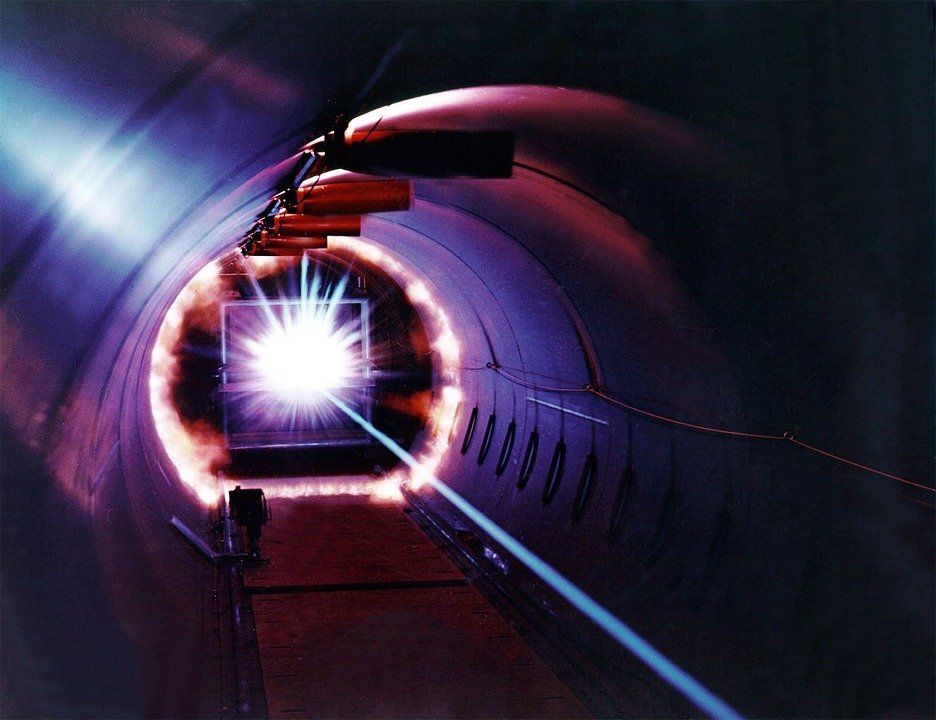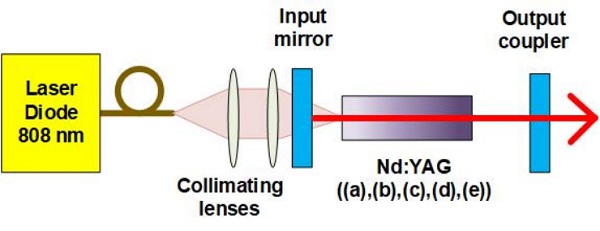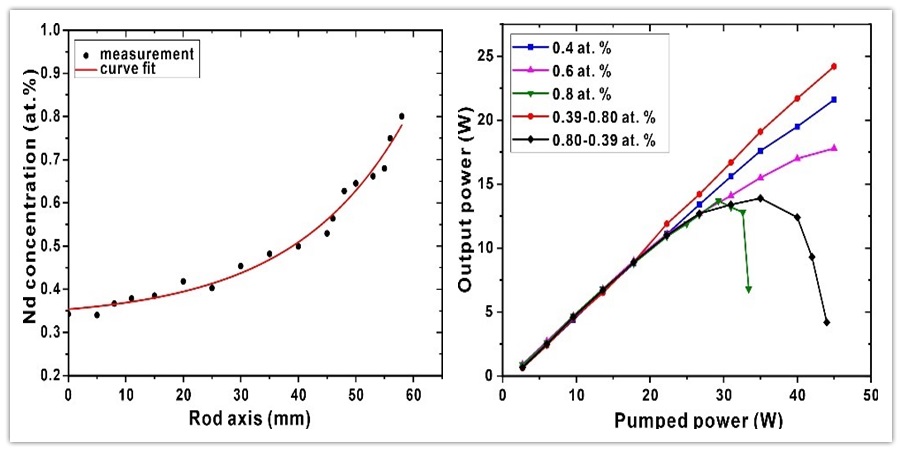
The improvement of high-repetition-rate Nd:YAG laser performances is still a long-standing challenge, although many novel architectures of the laser have been developed. High concentrations of Nd3+ crystals will bring serious thermal effects, possible concentration quenching at strong pump power. However, the high conversion efficiency is difficult to obtain for crystals with low concentrations of Nd3+.
A research team led by Prof. JIANG Haihe and Prof. ZHANG Qingli, from the Hefei Institutes of Physical Science (HFIPS) of the Chinese Academy of Sciences (CAS), have recently grown a gradient-doped Nd:YAG crystal and used it for LD end-pumped laser. The research has been published on Photonics Research.
In this work, the researchers used a modified Czochralski method to grow a gradient dopant Nd:YAG crystal with a concentration of 0.34-0.80 at.%, and designed experiments to explore the thermal and optical mechanism and performance of gradient concentration crystals. The temperature distribution along the rod axis of the gradient concentration crystal and the uniform crystal, revealed that the gradient crystal did not only lower the maximal temperature value, but also remarkably exhibited a more even temperature distribution along the rod axis. The optical-to-optical conversion efficiency reached 53.8% of the gradient-doped crystal, enhanced by 35.9% compared with the uniform crystal of 0.60 at.%.
The research indicated that the gradient concentration crystal exhibited excellent ability to increase output energy and conversion efficiency in high-repetition-rate pulsed lasers, and offered a way for the future technical route to high energy efficiency.
Link to paper: Superior performance of a 2kHz pulse Nd:YAG laser based on a gradient-doped crystal

Experimental arrangement for comparison of different crystals (Image by WEI Mengen)

Nd3+ concentration distribution (left) and output average power on pump power. (Image by WEI Mengen)
Contact:
ZHAO Weiwei
Hefei Institutes of Physical Science (http://english.hf.cas.cn/)
Email: annyzhao@ipp.ac.cn
 Tel: +86-551-65591206
Tel: +86-551-65591206
 Fax: +86-551-65591270
Fax: +86-551-65591270
 Emai: zhous@hfcas.ac.cn
Emai: zhous@hfcas.ac.cn
 350 Shushanhu Road
350 Shushanhu Road